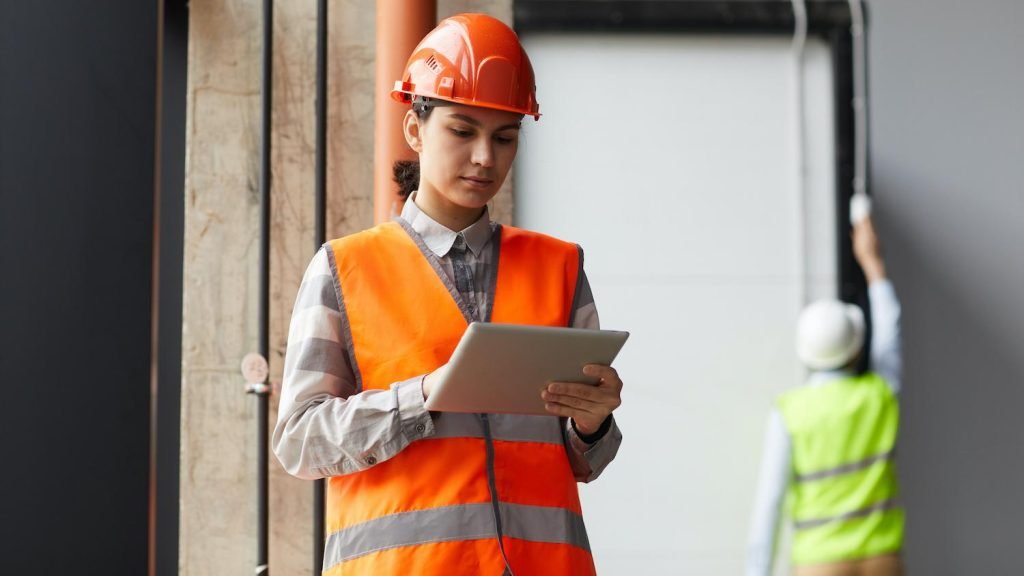The closure of Women into Construction has sparked discussions about the future of diversity initiatives in the construction sector, as industry leaders emphasise the need for systemic change and a commitment to inclusivity.
The recent announcement regarding the closure of the organisation Women into Construction (WIC) has sent ripples through the construction industry, leaving many to ponder the future of diversity and inclusion initiatives in the sector. For 16 years, WIC played an instrumental role in advocating for gender balance within the construction industry by supporting more than 4,700 women with training and opportunities to gain a foothold in this traditionally male-dominated field.
Neela Ahmed of E1, a company at the forefront of promoting diversity, elaborated on the need to address systemic barriers that continue to hinder the full inclusion of women and other underrepresented groups in construction. Reflecting on a career spent navigating predominantly male industries, Ahmed underscored that diversity and inclusion remain critical challenges. These are not mere corporate slogans but essential aspects in need of actionable strategies to be effectively tackled.
The closure of WIC amplifies existing concerns highlighted by the World Economic Forum in its 2024 Global Gender Gap Report. The report suggests that, under current conditions, it might take up to 134 years to bridge the global gender gap. Within construction, cultural biases and outdated practices persist, creating a difficult environment for women aspiring to senior leadership roles. These challenges are compounded by traditional gender roles and a lack of accessibility to mentorship and sponsorship, which are crucial for professional advancement.
Well-known figures such as Alison Nimmo exemplify the heights women can attain within the industry. Nimmo’s notable contributions to the infrastructure of the London 2012 Olympic Games highlight the potential for women to excel when given the opportunity. Her pioneering efforts stand as testament to the effective permeation of women into sectors previously perceived as exclusive to men.
E1 remains proactive in its approach to supporting women in construction through its Empowering Women in Construction initiative. This programme is positioned to spotlight the accomplishments of women within the industry, foster narratives of success, and sustain a community that supports growth and leadership amongst women in construction.
Ahmed proposes several strategies to help foster an environment of greater inclusivity and diversity within the industry. Mentorship and sponsorship are suggested as pathways to provide guidance and career advancement opportunities. Companies are urged to rethink hiring practices by embracing diverse panels and employing techniques such as blind recruitment to minimise unconscious bias.
Creating and maintaining a culture of inclusivity is vital, Ahmed notes, where diversity is actively celebrated rather than passively acknowledged. This involves ongoing diversity and inclusion training and cultivating allyship amongst employees to encourage a workplace where inclusivity is ingrained in the company’s ethos.
The role of allyship, particularly involving male colleagues, is highlighted as a tool to drive systemic change in the construction sector. Male allies can play significant roles by advocating for their female counterparts, participating in diversity training, and challenging prevailing discriminatory practices.
At E1, an equitable gender balance is evidenced at all levels of leadership, reinforcing the commitment to diversity as an operational cornerstone. The organisation strives to integrate inclusive practices throughout its operations, promoting an environment where all individuals, irrespective of gender or background, can thrive.
Despite the shutdown of organisations like Women into Construction, the movement towards a more diversified and inclusive construction industry continues. Industry leaders such as E1 and voices like Neela Ahmed are dedicated to persevering, ensuring that each step taken today propels the industry toward a more innovative and equitable future.
Source: Noah Wire Services





